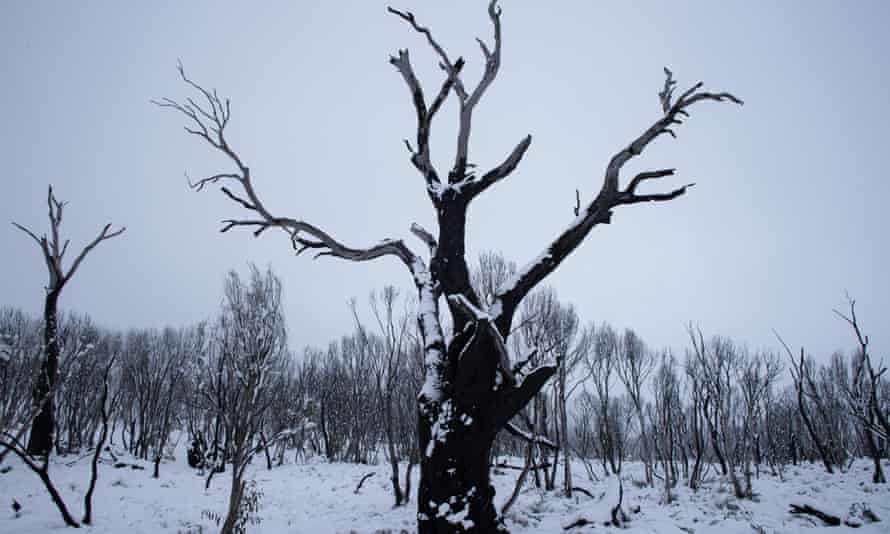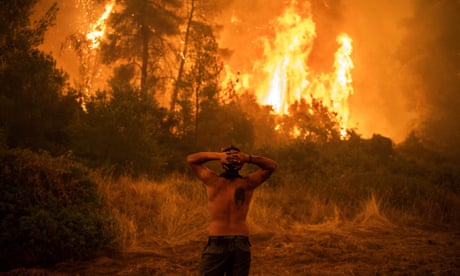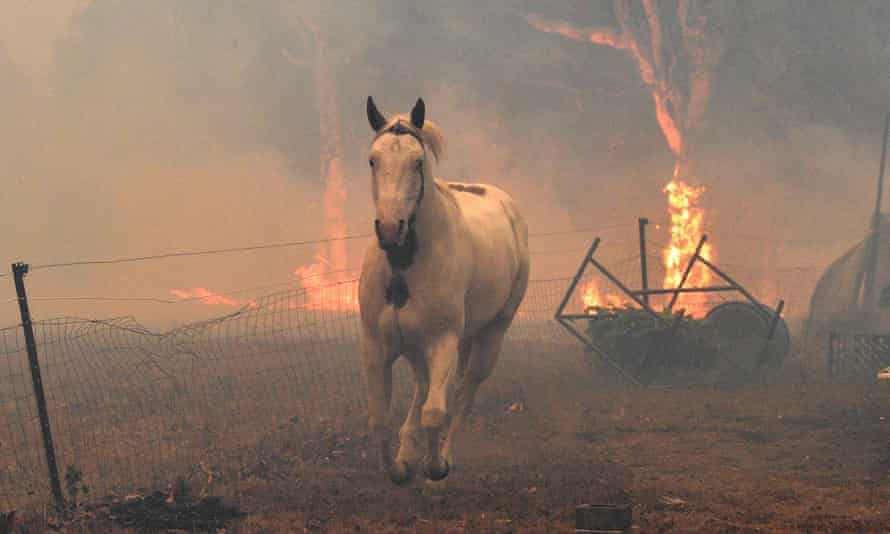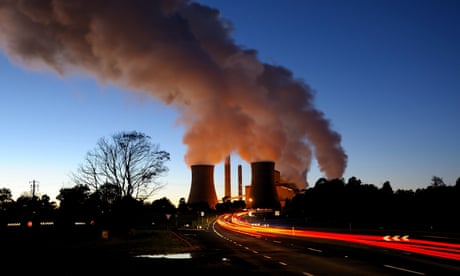Extract from The Guardian
A lead author of latest IPCC report says humans ‘still in the control cabin of the planet’ but there is no limit to the damage possible.
- Major climate changes inevitable and irreversible - IPCC’s starkest warning yet
- IPCC’s verdict on climate crimes of humanity: guilty as hell
- Climate crisis ‘unequivocally’ caused by humans, says IPCC
- What does the IPCC’s report mean for Australia, and what can we expect in the future?
- Download the free Guardian app; get our morning email briefing

Last modified on Tue 10 Aug 2021 07.31 AEST
Australian scientists have stressed it is “not too late” to take action to stem the worst of the climate crisis and called on leaders to “wake up” after a landmark global science report found widespread and rapid changes were already occurring across the planet.
The latest assessment by the Intergovernmental Panel on Climate Change, the world’s leading authority on climate science, found human activities were unequivocally heating the planet and causing changes not seen for centuries and in some cases thousands of years.
Human-induced climate change is already affecting weather and climate extremes in every region across the globe, helping cause increased heatwaves, heavier rainfall events and more intense droughts and tropical cyclones, the report found.
In Australia, it found average temperatures above land had already increased by about 1.4C since 1910. Annual changes in temperature were now above what could be expected from natural variation in all regions across the continent.

A regional fact sheet released alongside the report said heatwaves and dangerous fire weather had increased, the bushfire season had become longer, and marine heatwaves were more common. Sea levels were rising faster in Australia than the global average and sandy shorelines were already retreating in many areas.
As the century goes on and temperatures and emissions rise further, heat extremes and heavy rainfall events were projected to increase, and there would be more sand and dust storms. The impact of the La Nina and El Niño cycles on Australia’s rainfall – which has fallen across the southern part of the continent, particularly in Western Australia – were expected to become even more pronounced. Droughts affecting ecosystems and agriculture would probably increase as global warming hits 2C.
Globally, the report found temperatures would continue to increase until at least mid-century under all future scenarios. It also found global heating of 1.5C and 2C above pre-industrial levels – the benchmarks referred to in the Paris agreement – would be exceeded this century unless there were deep reductions in carbon dioxide and other greenhouse gases.
Cop26 summit crucial
Dr Joëlle Gergis, of the Australian National University and a lead author of the report’s chapter on changes in rainfall, said 1.5C was “very likely” to be breached by the early 2030s. She said the report should be “a wake-up call for the world” ahead of the UN’s Cop26 climate summit scheduled for Glasgow in November.
“If this report, and the evidence from around the world right now, does not convince this generation of political leaders that we have to stabilise the climate then I don’t think anything else will. This is as clear as we can be. Now it’s up to our political leaders to act.”
Dr Pep Canadell, a coordinating lead author of a chapter of the IPCC report and the director of the Global Carbon Project based at CSIRO, said the report showed humans were “still in the control cabin of the planet and climate system”, but may not be unless there was urgent action to cut emissions.
He said the “fingerprint of humans” was already clear in climate extremes and weather events, including floods, heatwaves and fires.
“Every decimal of a degree that we are avoiding is a win for us and a win for the planet,” Canadell said. “The important thing to understand is there is no bottom end to how much damage we can create.”

Shayne McGregor, an associate professor at Monash University and another report lead author, said a key message was that it was “not too late” to act. He said large-scale, rapid and sustained emissions reductions were needed.
“I think there’s this idea that once we get to 1.5C it’s some kind of cliff edge [but] every action we do moving forward is beneficial,” he said. “Every half a degree or 0.1 of a degree of warming we can reduce or minimise, the better off we are.”
He said the Morrison government was committed to its 2030 commitment of a 26-28% cut in emissions compared with 2005 levels.
The Greens said the IPCC report made it clear the government’s current 2030 target was a “death sentence” for Australia. Scientists have previously advised Australia cut emissions by at least 50% by 2030 for the country to place its part in attempting to breach the goals of the Paris agreement.

Labor’s climate spokesperson, Chris Bowen, said the report was “yet more evidence of the costs of inaction, and it’s past time the government stop spinning and start delivering for Australians”. He said a “bare minimum” commitment should be committing to net zero emissions by 2050.
“Australians deserve better than a government that tries to spin its way through as about 70% of global GDP decarbonises, and existing export markets dry up,” Bowen said.
Adam Bandt, the leader of the Greens, said the report exposed the “stark reality” that without emergency action the globe would head beyond 1.5C of warming, potentially within a few years. He called on the government to “double or triple” its 2030 targets.
“The rest of the world understands that if we don’t do more by 2030, we all go over the climate cliff, so the Liberals’ 2030 denial and Labor’s 2030 silence are putting Australian lives at risk,” he said.
No comments:
Post a Comment